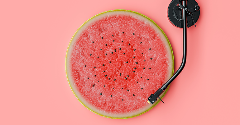News
Kombucha Brewers International releases code of practice to standardize kombucha
3 Aug 2020U.S. kombucha trade association Kombucha Brewers International (KBI) established a code of practice that outlines the quality standards for the production of this fermented beverage. The trade group is also working on releasing a seal for manufacturers looking to identify their kombucha as “authentic.”
This standardized code requires that kombucha be made with only tea leaves, natural sweeteners, water and Symbiotic Culture of Bacteria and Yeast (SCOBY). As many of kombucha brands sweeten their drinks, flavoring is allowed under the guidelines but may not exceed 20% of the finished products.

Of course there are plenty of other kombucha drinks that are made without the use of tea leaves and the code of practice provides provisions for them. While fermented beverages made with herbs, coffee, honey or yerba mate are not considered “traditional kombucha,” they may use the term “kombucha” with a qualifying adjective.
There is a special category called “Processed Kombucha,” which is defined as “any type of kombucha to which a process has been applied to the product outside the traditional manufacturing process. Examples include pasteurization, dealcoholization, filtration, filter sterilization or any other process that changes the nature of traditional kombucha.”
Distinguishing this category is an important change within the kombucha industry that has been beset by lawsuits in recent years. Questions about alcohol content in these fermented tea beverages have resulted in a slew of class action legal cases against companies, including Health-Ade and Brew Dr. To try and correct the alcohol levels in these beverages, which many times results from prolonged fermentation in a bottle, some manufactures have relied on heat treatments and filtering to slow the transformation of sugar into ethanol.
Other manufacturers are lobbying to raise the allowable alcohol content from 0.5% to 1.25% in order to provide a larger buffer for the development of alcohol while kombucha remains on the shelf. In the KBI code of practice, the alcohol level is established at between 0% and 3.2%.
Through standardizing the definition of kombucha, this code of practice is attempting to bridge this division in approaches and "create a food safety and quality standard for kombucha producers that creates transparency for consumers to make informed choices.” However, not all manufacturers believe this approach is beneficial.
“Unfortunately, these definitions are being manipulated to protect producers that are funding KBI to lobby for regulation changes that would bring the legal non-alcoholic threshold of kombucha to 1.2%. They are a way to distinguish brands from one another and are not aimed at customer protection whatsoever,” Aqua ViTea founder Jeff Weaber told Ingredients Network in a statement.
However, having the ability to clearly define this beverage and offer an official label has the ability to go a long way in giving consumers confidence in these products, whose popularity has grown rapidly. The kombucha market is anticipated to reach $7 billion by 2027 with a compound annual growth rate of 19.7%, according to Grand View Research.
Related news

Retail landscape lacks nutritious and affordable food, says ATNi
30 Dec 2025
A rapid increase in modern food retail has given retailers growing influence over consumer diets, according to global non-profit ATNi’s latest assessment.
Read more
Debate over ban on ‘meaty’ names for plant-based products reaches stalemate
26 Dec 2025
The debate over a ban on plant-based products using “meaty” terms has reached a stalemate, leaving manufacturers in limbo and still facing overhauls to their marketing and packaging.
Read more
Multi-sensory food and drink products to gain traction in 2026
16 Dec 2025
Trend forecasters predict that sensory elements will play a larger role, helping food and beverage brands differentiate themselves in a competitive market in 2026.
Read more
Big appetite for M&A between European and US food and drink companies
3 Dec 2025
Persistent tariffs on EU food and beverage exports have helped drive record levels of M&A activity between European and US companies this year, according to analysis by ING.
Read more
Non-UPF Program extends certification scheme to entire food industry
30 Nov 2025
The Non-UPF Program has extended its certification scheme to the wider food sector, championing a move towards healthier consumption habits.
Read more
Lancet study links UPFs to chronic disease risk
26 Nov 2025
UPFs are consistently associated with an increased risk of diet-related chronic diseases, according to a comprehensive review of global evidence in The Lancet .
Read more
Concerns swirl around cinnamon’s compliance with EU law
25 Nov 2025
Cinnamon may be a top functional ingredient, but it needs stronger protocols to ensure it meets EU food safety laws and quality standards, say researchers.
Read more
Oat Barista: Innovation for game-changing beverages
20 Nov 2025
Oat Barista is a clean label, sustainable, and innovative drink base specifically designed to create the perfect foam in one single ingredient.
Read more
How younger consumers are redefining ingredient choices and rejecting brand loyalty
18 Nov 2025
Gen Z and millennial consumers’ preferences for transparency, functionality, and purpose are “redefining the very nature of consumption itself”, says SPINS.
Read more
Hybrid formats and flexible positioning to disrupt category norms in 2026
17 Nov 2025
Trend forecasters expect food and drink to move more fluidly across occasions, functions, and formats as consumers seek versatility, novelty, and convenience.
Read more